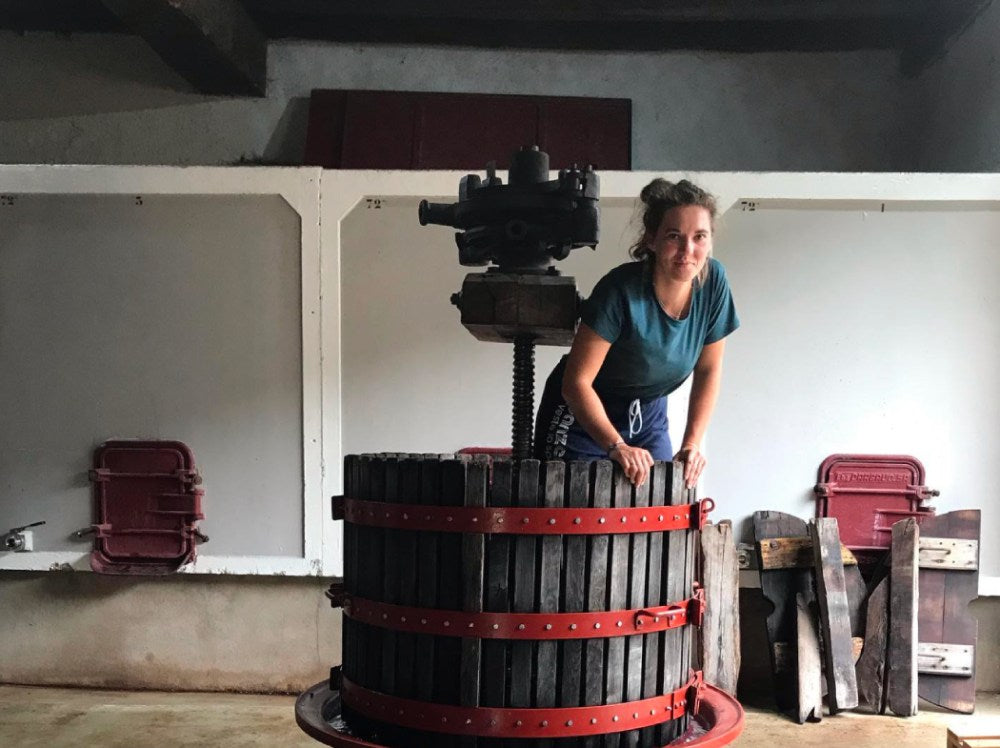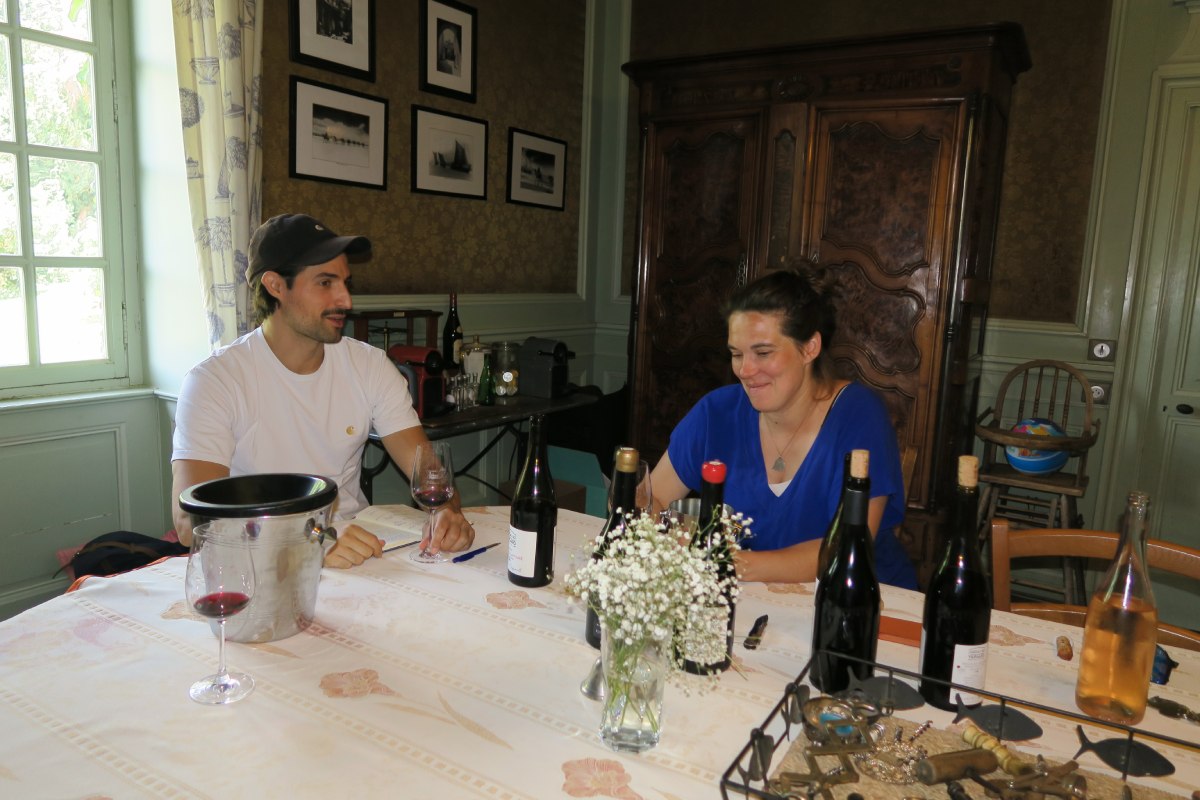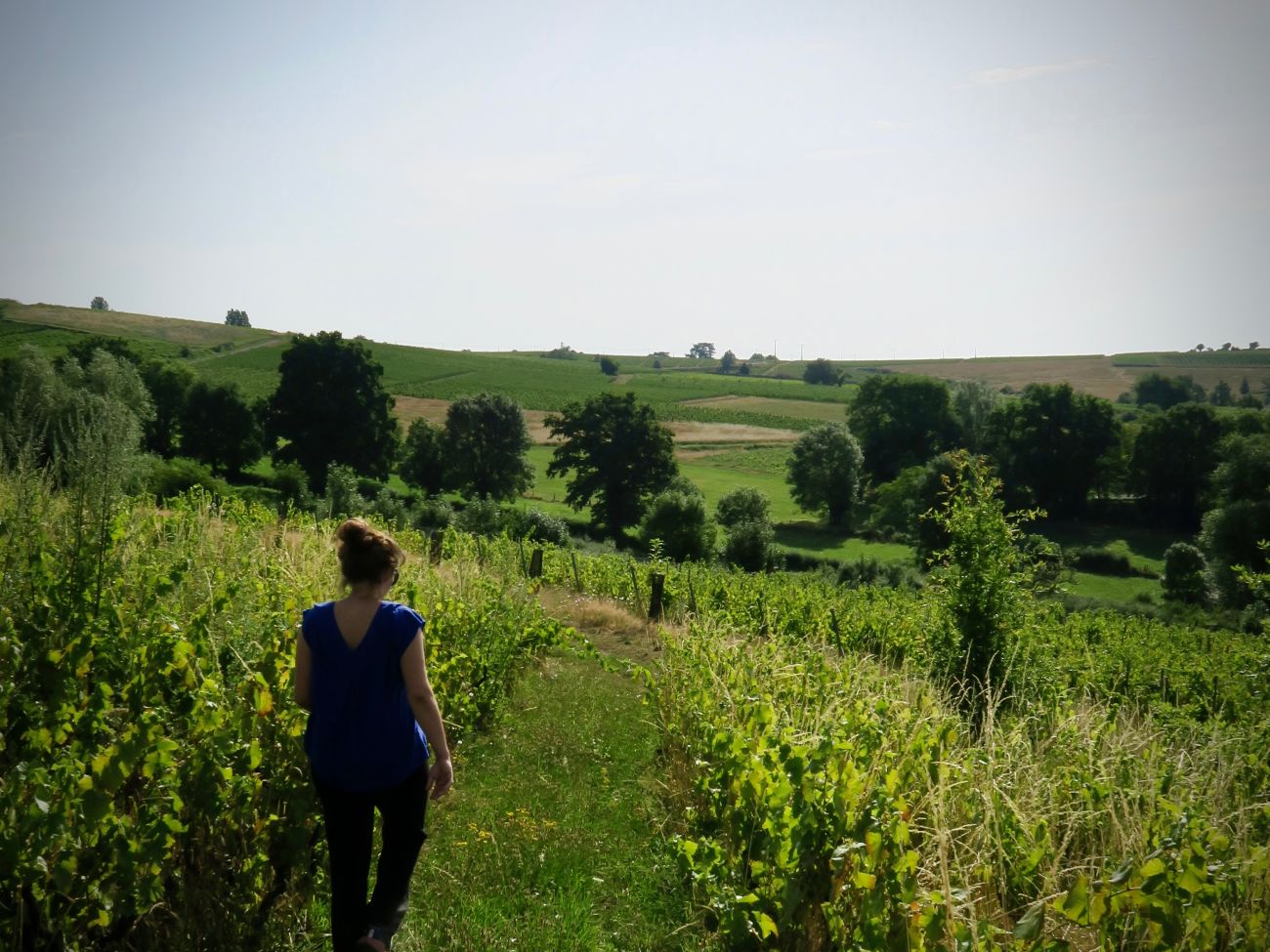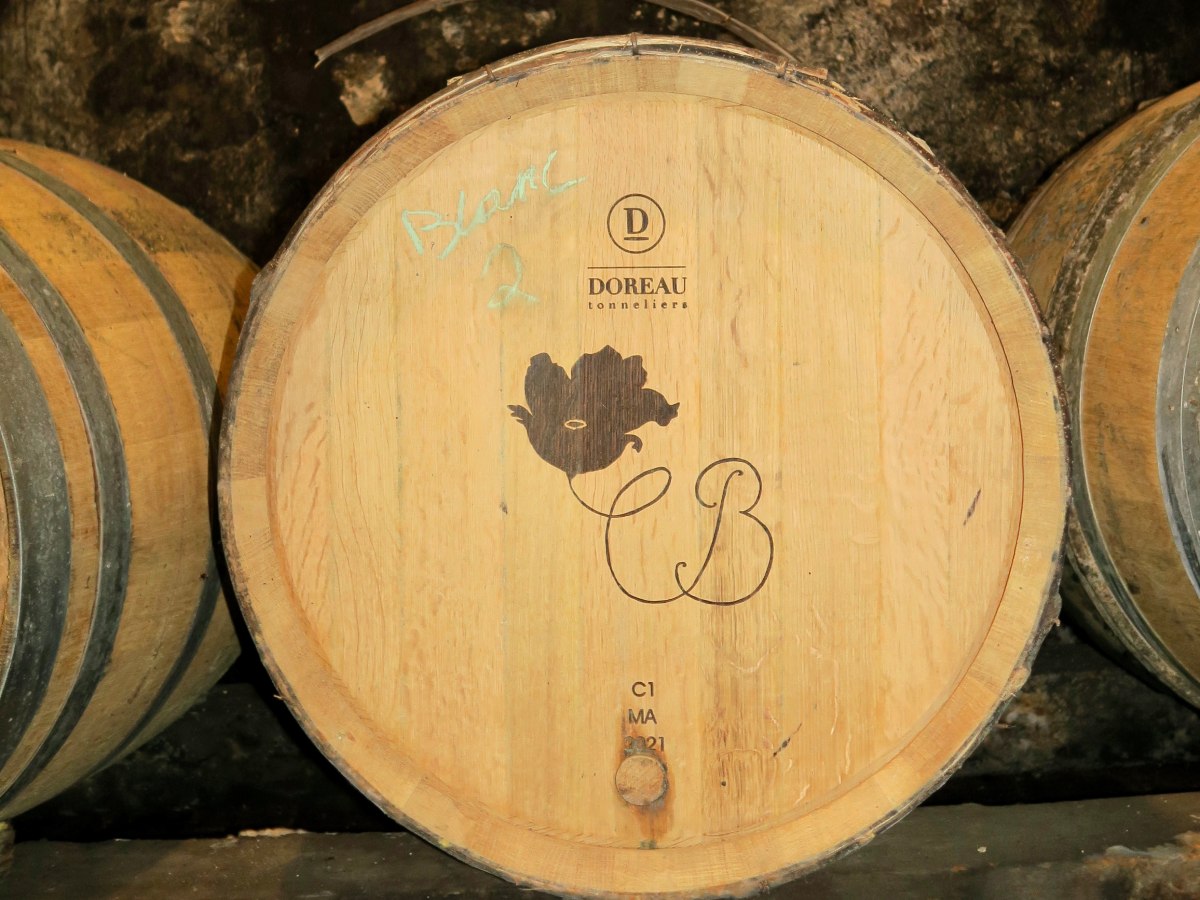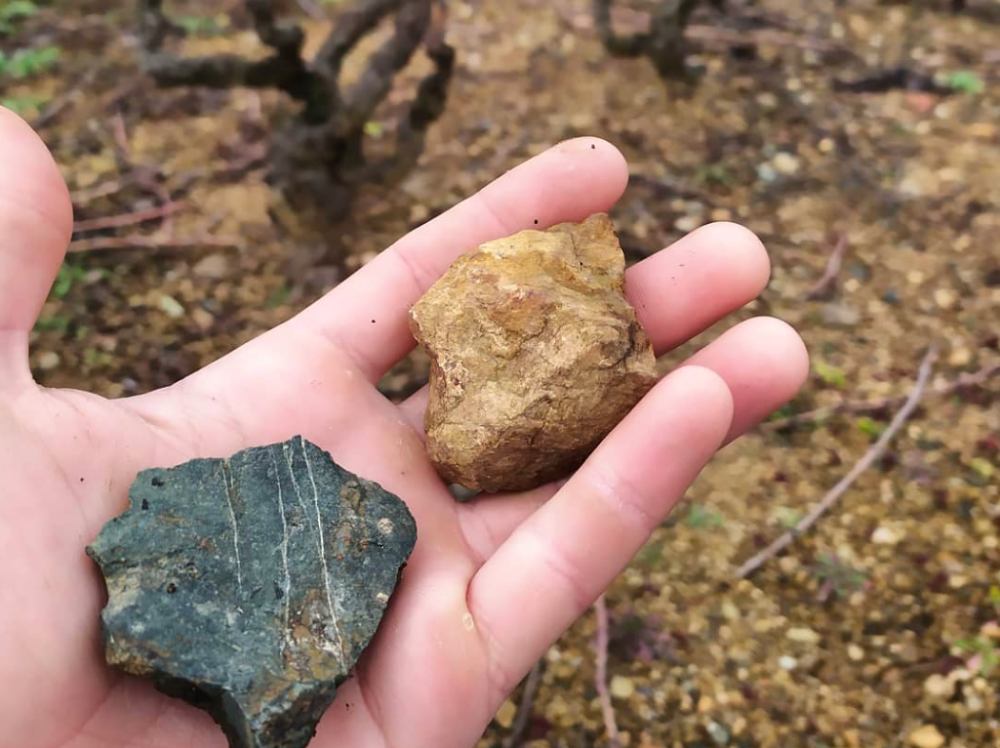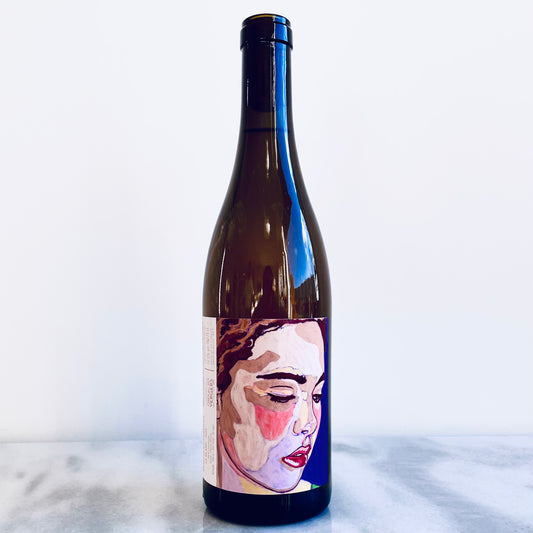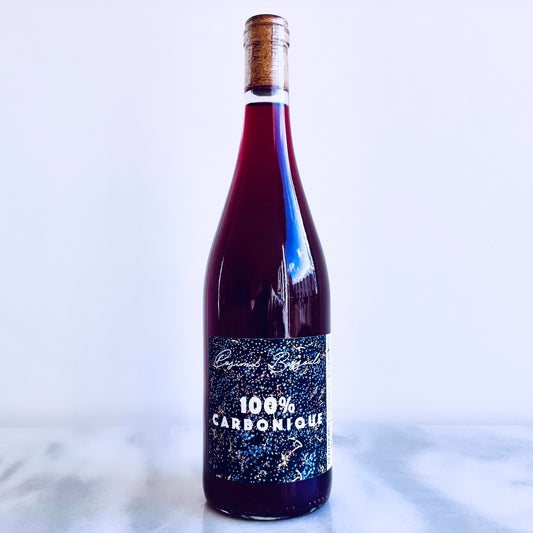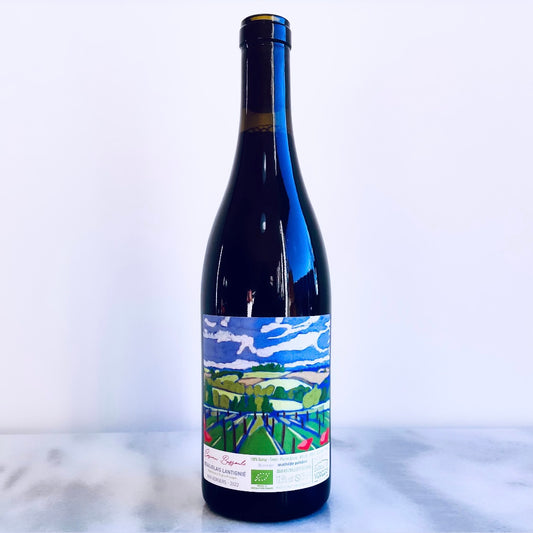Cosima Bassouls - Château des Vergers
Vice Magazine had a pretty good flair when, back in 2019, the Munchies’ journalist visited the Beaujolais region to interview the young Cosima Bassouls.
Now running the 7 hectares big family estate located a stone’s throw away from the glorious Morgon “Côte du Py”, Cosima is part of the Bojo’s vanguard. Better than a long speech, it takes one snif & sip of “Le Blanc” to understand that her 3rd vintage is like no other 3rd vintage. With that “aligoté made in Arbois” style, her wine instantly struck a chord with me.
Trained as an engineer in international agro-development, Cosima’s ambition was to do humanitarian work. Following a few projects in Tunisia, Peru and Madagascar, she got a bit disillusioned with this environment. “Long story short, I realised that the projects were just meant to get subsidies from the states and that the money wasn’t going to the right pocket.” Consequently, she decided to come back to France to make a difference where she can. Prior to take over the estate, she worked at several internships in Savoie and Roussillon, focusing on organic and regenerative agriculture and agroecology. While the plan was slowly to take over maybe one day, Cosima mum’s decease precipitated fate.
« I wasn’t planning to take over the estate but I didn’t want our family to sell it ». She suggested to be the one that would run the estate but at one condition: That she would run it on her own terms. “À sa sauce” as we say in French.
She began the conversion of everything to organic farming in 2019, utilizing agroforestry and cover crops to create an integrated landscape that brings nature into the vineyards. She utilizes 15 different cover crops, rotating and adapting each to suit the needs of the parcel, which creates natural biodiversity and a true polyculture with healthy, living soil, which also counteracts erosion.
Cosima also employs other progressive vine-training methods, including planting all new parcels to cordon instead of gobelet. She has started the process of training her old vines on high stakes, where they can benefit from natural ventilation as a way to combat disease naturally. She braids the ends of the vines rather than cutting the leaves on the top of the plant, as she feels it is important because it is where the plant receives information and stores memory. Cosima continues to plant trees throughout her vineyards for multiple reasons, including evidence that the mycorrhizal fungal networks that work in synergy with tree roots are beneficial not only to healthy soil development but are a key factor in the transmission and regulation of vineyard systems. Trees are also an effective tool in controlling the heat in vineyards and providing shade, combating the effects of climate change. All of this leads to a healthier terroir, less intrants and more complexity in the resulting wines.
With all that said, the elders can retire with full peace of mind. Cosima and the new generation is at work to keep the Beaujolais region at the forefront of natural winemaking.
You can follow Cosima's journey on Instagram :)

